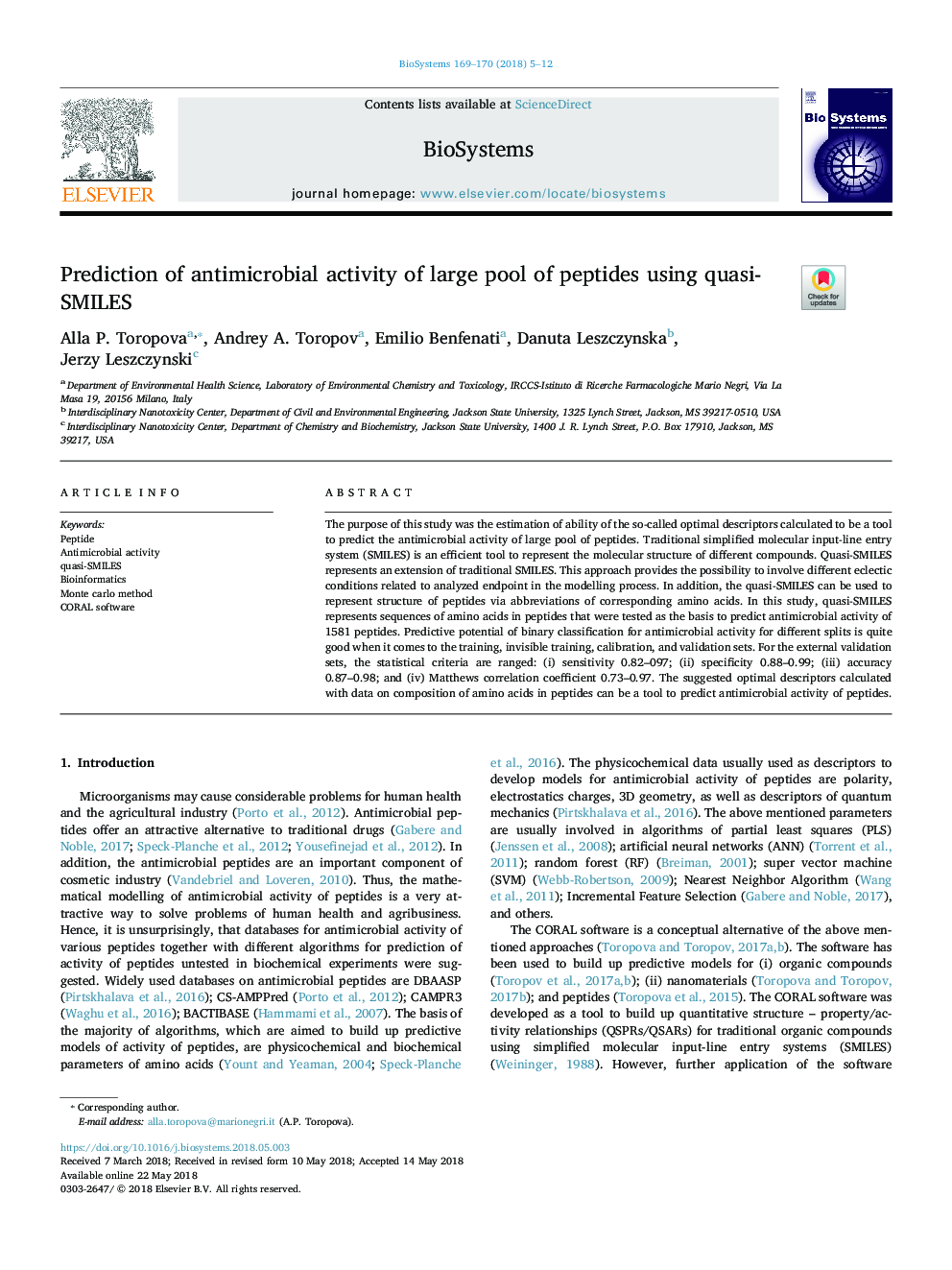| Article ID | Journal | Published Year | Pages | File Type |
|---|---|---|---|---|
| 8406392 | Biosystems | 2018 | 8 Pages |
Abstract
The purpose of this study was the estimation of ability of the so-called optimal descriptors calculated to be a tool to predict the antimicrobial activity of large pool of peptides. Traditional simplified molecular input-line entry system (SMILES) is an efficient tool to represent the molecular structure of different compounds. Quasi-SMILES represents an extension of traditional SMILES. This approach provides the possibility to involve different eclectic conditions related to analyzed endpoint in the modelling process. In addition, the quasi-SMILES can be used to represent structure of peptides via abbreviations of corresponding amino acids. In this study, quasi-SMILES represents sequences of amino acids in peptides that were tested as the basis to predict antimicrobial activity of 1581 peptides. Predictive potential of binary classification for antimicrobial activity for different splits is quite good when it comes to the training, invisible training, calibration, and validation sets. For the external validation sets, the statistical criteria are ranged: (i) sensitivity 0.82-097; (ii) specificity 0.88-0.99; (iii) accuracy 0.87-0.98; and (iv) Matthews correlation coefficient 0.73-0.97. The suggested optimal descriptors calculated with data on composition of amino acids in peptides can be a tool to predict antimicrobial activity of peptides.
Related Topics
Physical Sciences and Engineering
Mathematics
Modelling and Simulation
Authors
Alla P. Toropova, Andrey A. Toropov, Emilio Benfenati, Danuta Leszczynska, Jerzy Leszczynski,
